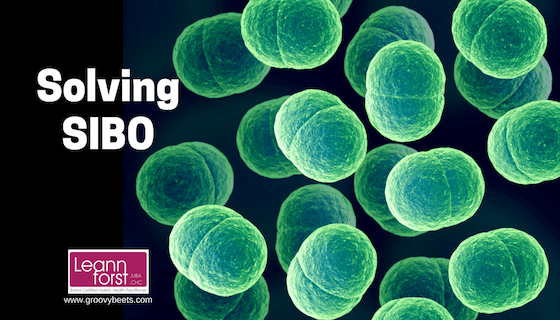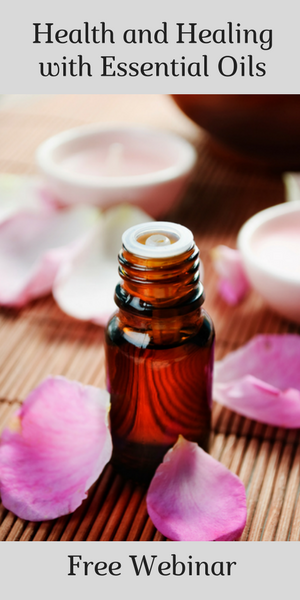Do You Suffer From Digestion Issues?
What is SIBO?
SIBO stands for Small Intestinal Bacterial Overgrowth. People who suffer from SIBO have too much bacteria in their small intestine and will often experience the following symptoms:
- Nausea
- Bloating
- Vomiting
- Diarrhea
- Weight loss
- Joint pain
- Fatigue
- Rashes
- Acne
- Eczema
- Asthma
- Depression
Now, it’s important to remember that bacteria is necessary for digestion system because it helps your body digest food and absorb nutrients. But the majority of bacteria actually belongs in the colon. When the bacteria takes over the small intestine, you’ll experience the symptoms of SIBO.
SIBO can lead to poor nutrient absorption, IBS symptoms (such as gas, bloating, and pain), and possible damage to the stomach lining.
Click here to get my FREE list: “10 Symptoms That Reveal You Need a Detox”
SIBO Treatment
There are many underlying conditions associated with SIBO. “Any illness or disease that affects the body’s defense mechanism puts a person at risk for SIBO, but the majority of people develop SIBO because of an intestinal motility problem” (source). Other contributing factors can be:
- The Standard American Diet (SAD) – which is heavy in carbohydrates, processed foods, GMOs, and sugar
- High use of pharmaceutical drugs (especially antibiotics)
For treatment, if you see a medical doctor they may prescribe antibiotics, since SIBO is bacterial. Taking antibiotics may work for a short time, but SIBO is a chronic condition.
If you do seek treatment by a doctor, be sure to find a doctor who has extensive experience with SIBO. There is no ‘one size fits all’ solution for SIBO and they may need to explore a variety of options.
I recently spoke with health and nutrition coach, Jen Broyles (see the video above) who has suffered with SIBO. She advises the following:
- Plan your diet – and especially, don’t be afraid of food. Jen recommends the FODMAP elimination diet to start (see more below).
- Lifestyle changes – manage stress and emotions. There is actually a correlation between people who stress easily and people who suffer from SIBO.
- Practice positivity – the mind/body connection is very important to your overall health.
- Supplement protocol – this differs for each person and is based on symptoms, but Jen recommends:
- Whole food multi-vitamin, like doTERRA’s Lifelong Vitality Supplements
- Good quality fish oil, like IQ Mega
- Antioxidant protection (for inflammation)
- Digestive enzyme, like Terrazyme
- Probiotic, like PB Assist+ and GX Assist
- Essential oils – which are plant-based medicine. The best ones for SIBO are:
FODMAP Elimination Diet
FODMAPs are short-chained carbohydrates that are not well absorbed during digestion. The acronym stands for (source):
- Fermentable – meaning they are broken down (fermented) by bacteria in the large bowel
- Oligosaccharides – “oligo” means “few” and “saccharide” means sugar. These molecules are made up of individual sugars joined together in a chain
- Disaccharides – “di” means two. This is a double sugar molecule
- Monosaccharides – “mono” means single. This is a single sugar molecule
- And Polyols – these are sugar alcohols (however, they don’t lead to intoxication!)
When you first start this journey, you’ll need to only eat foods that contain low FODMAPs. But keep in mind that the following categories all contain exceptions:
- Vegetables and legumes
- Fruit
- Meat and poultry
- Fish and seafood
- Dairy and eggs
- Nuts and seeds
 Here are some specific foods that contain high FODMAPs and should be avoided:
Here are some specific foods that contain high FODMAPs and should be avoided:
- Apples
- Peas
- High fructose corn syrup
- Honey
- Onion
- Garlic
- Cauliflower
- Mushrooms
- Cherries
- Beans
- Yogurt
- Ice cream
- Ripe bananas
- Asparagus
- Sun-dried tomatoes
- Cottage cheese
- Cow, sheep & goat milk
- Wheat products
As you can see, it’s sort of a complicated diet. Click here for printable versions of the full list of foods to eat and avoid on the FODMAP diet.
SIBO and Serious Illnesses
When it comes to gut health, it’s so important to remember that 70% of our immune system resides in our gut. So if your digestion is off and your gut is not healthy, then your immune system is not functioning as well as it should. This can lead to serious illnesses.
If left untreated, SIBO can lead to:
- Deficiencies in iron, vitamin B12, calcium, and fat-soluble vitamins
- Damage to the central nervous system
- Memory loss
- Megaloblastic anemia
- Osteoporosis
- Kidney stones
- Organ system dysfunction
- Gastrointestinal cancer
Jen Broyles is a Certified Holistic Health and Nutrition Coach with a passion for helping people restore their health naturally and enjoy life.
Jen started doing her own reading and research about nutrition and lifestyle and she became passionate about holistic health and returned to school to study integrative nutrition. Jen has gained a ton of valuable information over the years through working with many experienced doctors, functional medicine practitioners, alternative medicine practitioners, and testing things out on herself.
To find out more about Jen, visit her website: https://www.jenbroyles.com

Disclosure: this post contains affiliate links.
 Login
Login









